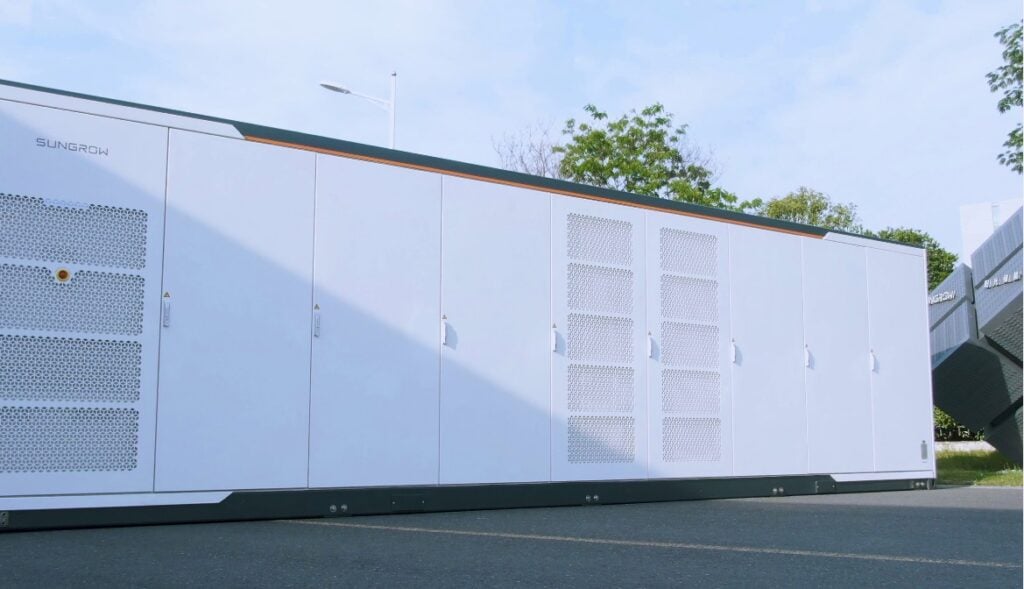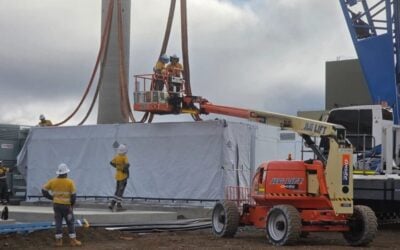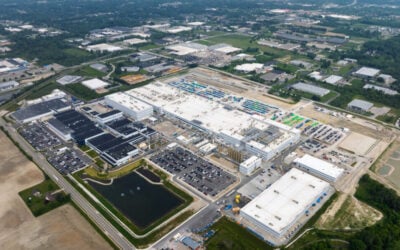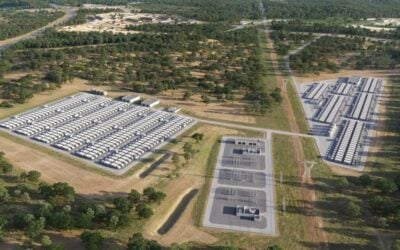
We bring you the energy storage technology predictions of Aquila Clean Energy EMEA, Kyon Energy and BayWa r.e, three major Europe-based developers and operators.
This article follows yesterday’s broader Year in Review piece in which energy storage executives from the three firms looked backed on the year just gone and ahead to 2024. In their responses to a question around technology, published separately here, all three highlighted sodium-ion as one to watch out for.
Enjoy 12 months of exclusive analysis
- Regular insight and analysis of the industry’s biggest developments
- In-depth interviews with the industry’s leading figures
- Annual digital subscription to the PV Tech Power journal
- Discounts on Solar Media’s portfolio of events, in-person and virtual
But Aquila and Kyon Energy both said that upgrades to lithium iron phosphate (LFP) lithium-ion battery (LIB) cells are expected too, while BayWa said sodium-sulphur‘s share in the market could increase, while not getting to the scale of lithium-ion or sodium-ion.
Their answers coincide with a press release from Dongguk University in South Korea following research from a group of scientists into the recent advances in sodium-ion battery (SIB) technology.
Research leader Professor Kyung-Wan Nam said: “While the cost of SIBs might be (only) slightly lower and comparable to LIBs, the availability of sodium and the use of less toxic materials makes them a great alternative. In the long term, SIB can complement LIB technology, rather than being a competitor,” says Prof. Nam.
It also comes after European lithium-ion gigafactory firm Northvolt claimed a ‘breakthrough’ in the sodium-ion battery technology development it is doing with Altris in November 2023.
See the technology predictions from the developers in response to Energy-Storage.news’ question below.
Energy-Storage.news: What are some major trends in energy storage technologies that readers should keep an eye out for?
Kilian Leykam, director energy storage, Aquila Clean Energy EMEA
We are expectant about the upcoming technological enhancements for lithium-ion when it comes to degradation, efficiency, cost, and longer duration systems. We are also seeing new players entering the utility-scale market with a different technological perspective. So, there is more to come with regards to lithium-ion, and particularly LFP. In terms of other technologies, we expect that sodium-ion will continue to be rolled out by major market players, but the technology still needs to be proven in the field.
Julian Gerstner, head of storage, BayWa r.e.
Storage technologies are always evolving, so you should keep an eye out for the development of sodium-ion batteries, which can be one of the few technologies able to achieve a market share comparable to lithium batteries, in the short term. They’re still largely in the research and development stage, but I expect to see them become a popular choice for battery storage systems in the near future.
There is an additional technology with sodium-sulphur batteries available. A high-temperature battery, which has been commercially available for over ten years and with a proven operational track record. I believe this technology could be a hidden champion. Not reaching the volume like Li-ion or sodium-ion (Na-ion), but I believe market share will increase.
Recycling will also be a big trend, especially in Europe where regulations require the circulator of the battery, or the OEM, to take back batteries and recycle them accordingly. Further, nearly all major battery cell manufacturers are working on recycling factories, or are partnering with the recycling industry, because everyone wants to have their raw materials back. We’ll certainly see a circular economy for storage developed in the coming years, eliminating recycling issues for batteries in the future.
Florian Antwerpen, managing director, Kyon Energy
In the dynamic landscape of energy storage technologies, several key trends are poised to shape the industry’s future. From the Kyon perspective, these are some noteworthy developments:
- Higher Energy Density with New LFP Battery Cells: It is expected that the energy density of new LFP (lithium iron phosphate) battery cells will increase in the future. This progress will lead to increased performance and capacity of the storage systems, all achieved within the confines of the same footprint. The potential for improved efficiency and performance makes LFP a focal point for innovation and progress in energy storage.
- Sodium-Ion Batteries as Complementary Technology: The spotlight is also shifting toward sodium-ion batteries, as they are slowly becoming more marketable. As the technology of sodium-ion batteries matures, their integration into the energy storage landscape could offer a compelling supplement to existing technologies such as LFP.
- Rise of Multi-Hour Storage: The relevance and viability of multi-hour storage (3, 4, 5 hours) may witness a notable increase with complementary technologies. This synergy has the potential to enhance the dependability and economic feasibility of extended-duration energy storage solutions.
- Price Dynamics of Lithium-Ion Batteries: The trajectory of lithium-ion battery prices is a crucial factor to monitor. As advancements continue and economies of scale come into play, there is a compelling question of whether the cost of lithium-ion batteries will continue to decline. A decreasing price point could render multi-hour storage with lithium-ion batteries increasingly attractive, opening new possibilities and applications.
Energy-Storage.news’ publisher Solar Media will host the 9th annual Energy Storage Summit EU in London, 20-21 February 2024. This year it is moving to a larger venue, bringing together Europe’s leading investors, policymakers, developers, utilities, energy buyers and service providers all in one place. Visit the official site for more info.
Energy-Storage.news’ publisher Solar Media will host the 5th Energy Storage Summit USA, 19-20 March 2024 in Austin, Texas. Featuring a packed programme of panels, presentations and fireside chats from industry leaders focusing on accelerating the market for energy storage across the country. For more information, go to the website.






